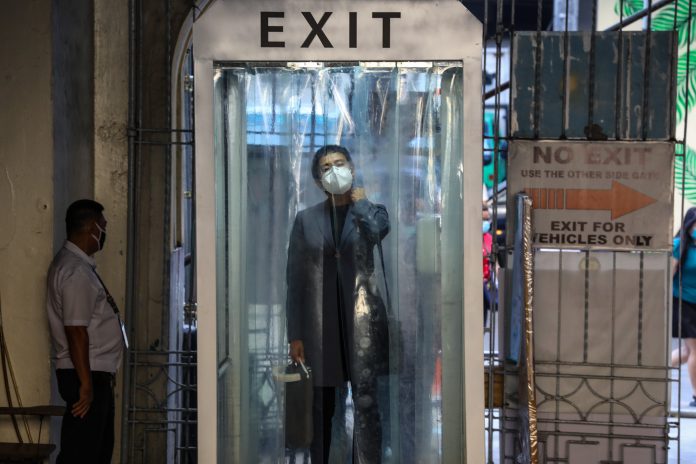A top aide to Philippines President Rodrigo Duterte said Monday the awarding of the Nobel Peace Prize to journalist and government critic Maria Ressa was proof that “press freedom is alive” in the country.
Ressa, co-founder of news website Rappler, and Russian journalist Dmitry Muratov were awarded the prize on Friday for their efforts to “safeguard freedom of expression.”
Since Duterte took power in 2016, Ressa and Rappler have faced a series of criminal charges and investigations in what media advocates describe as state harassment over their reporting, including on the government’s deadly drug war.
Duterte has called Rappler a “fake news outlet,” and Ressa has been the target of abusive messages online.
“It’s a victory for a Filipina and we’re very happy for that,” Duterte’s spokesman, Harry Roque, told a regular briefing.
“Press freedom is alive and the proof is the Nobel Prize award to Maria Ressa,” Roque said, in the presidential palace’s first public comments on the award.
Philippine press groups and rights activists have hailed Ressa’s prize as a “triumph” in a country ranked as one of the world’s most dangerous for journalists.
Ressa, 58, told AFP in an interview Saturday that she was still battling seven court cases, including an appeal of a cyber libel conviction, for which she faces up to six years in prison.
Two other cyber libel cases were dismissed earlier this year.
Ressa, who is also a US citizen, said she hoped the prize would help shield her and other journalists in the Philippines against physical attacks and online threats.
“This ‘us against them’ was never the creation of the journalists, it was the creation of the people in power who wanted to use a type of leadership that divides society,” Ressa said.
“I hope… this allows journalists to do our jobs well without fear.”
Roque denied the government had created a “chilling effect” for media outlets, saying anyone who claimed that “should not be a journalist.”
He also rejected suggestions Ressa’s Nobel Prize was “a slap” for the government, insisting “no one has ever been censored in the Philippines.”
“Maria Ressa still has to clear her name before our courts,” Roque said, calling her a “convicted felon.”
“We leave it to our courts to decide on her fate.”









